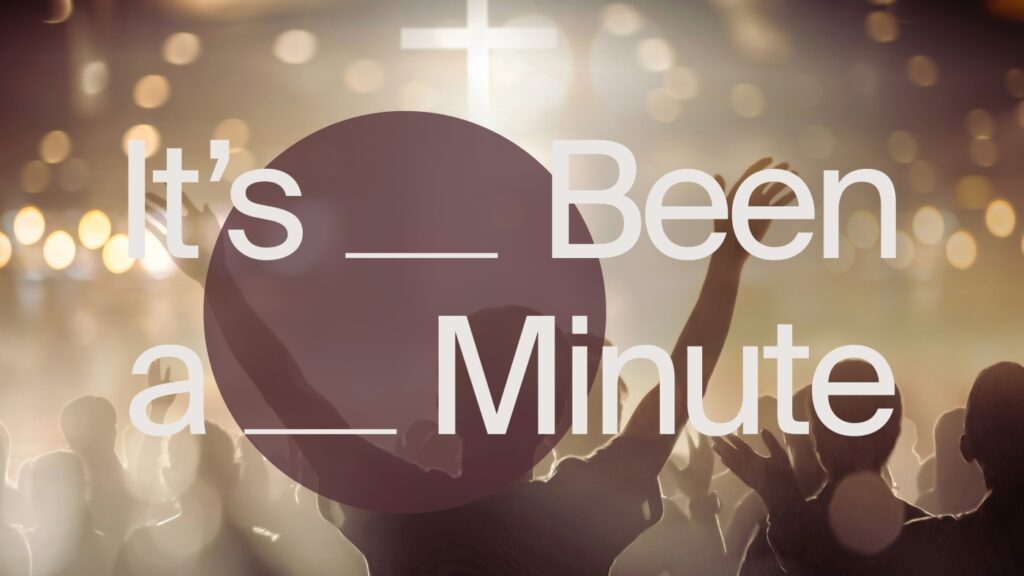Is Christian music the new pop music?
Getty Images
hide caption
toggle caption
Getty Images
For the first time, multiple Christian musicians are charting on the Billboard Hot 100 at the same time — and staying there for weeks. Has the mainstream music industry found Jesus Christ?
Brittany talks with University of Michigan-Dearborn Professor Emerita Dr. Deborah Smith Pollard and Christianity Today reporter Kelsey Kramer McGinnis to understand the multi-million dollar machine behind the Christian Contemporary Music genre. They unpack who gets shut out, and why this holy crusade on the charts has the potential to impact your listening habits.
Episode Highlights:
What exactly is Christian contemporary music, or CCM?
KELSEY KRAMER MCGINNIS: I tend to talk about it like an industry. So CCM is not a genre so much as it is a media ecosystem that really became popular in the 1980s and 1990s, at least popular in the way that it is now. So this music mirrors what you’d hear on mainstream radio in terms of style and characteristics. But you wouldn’t have the objectionable content. So think, you know, no sex, no drugs, those kinds of things.
DEBORAH SMITH POLLARD: Certainly, and when we look at Maverick City Music and Elevation Worship, when we look at CeCe Winans and Dante Bowe, we see that there are African Americans who sing both gospel and CCM.
What kind of CCM is hitting on the charts right now?
KRAMER MCGINNIS: I call it Barstool conversion rock. It’s sort of this interesting web of things between masculinity, kind of conservative politics, and country [music]. I mean, you even have Jelly Roll, Shaboozey, Alex Warren, a whole collection of, I would add, primarily male artists making this kind of faith-flavored music and really making breakthroughs with it.

How do these big megachurches, like Hillsong or Bethel, play into the economy of this worship music?
KRAMER MCGINNIS: For at least 20 years or so now, that megachurch experience has been driving the style, format and intended effect of a lot of CCM, what I would call contemporary worship music. You can find resources we call multitracks or stems that are created for churches to basically plug and play. There is a whole industry underneath this music that exists purely to help churches recreate the experience of being at one of these megachurches as closely as they can. Even if I go to a church of, you know, a hundred and fifty people on a Sunday morning, if I don’t have 20 musicians on stage, I can buy a couple synth parts. I can buy an electric guitar part. I can buy background vocals. I can buy choir effect. I can purchase lighting, all of these pieces that make it closer to what you would see when you watch a recording by Bethel.
How do we know what kind of music is being played in these churches?
KRAMER MCGINNIS: Christian Copyright Licensing International tracks the use of music across churches. And there’s a reason why so much of the music in there is tracking what’s being used in white churches, and there’s not as much music that is regularly used by Black churches there. So all of this is shaping the Christian music industry and the sounds of popular Christian music as we watch this all unfold.
Is there the same economic opportunity in gospel as there is in Contemporary worship music?
SMITH POLLARD: I doubt it because I’ve never been to a Black church where there’ve been the lyrics on the screen, other than the lyrics for a hymn or the lyrics for a Negro spiritual, OK? So that’s why I would say 99.9% of them are not having to pay CCLI for using that particular music.

Why do you think understanding this current CCM boom is something that’s important for people who are outside of Christianity?
KRAMER MCGINNIS: A lot of this music is made by men. And a lot of it is a little bit country-flavored as well. And to the extent that those things are all connected, what might be happening there? Why might this music be resonating? What does it tell us about masculinity and, you know, conservative politics and the search for faith at this moment? We have an administration right now that talks very openly about wanting to fight against anti-Christian bias in the world. And it’s hard not to look at that and then look at celebration over Christian music featuring prominently on “American Idol” and seeing a certain segment of evangelicals feeling like, this is our moment.


